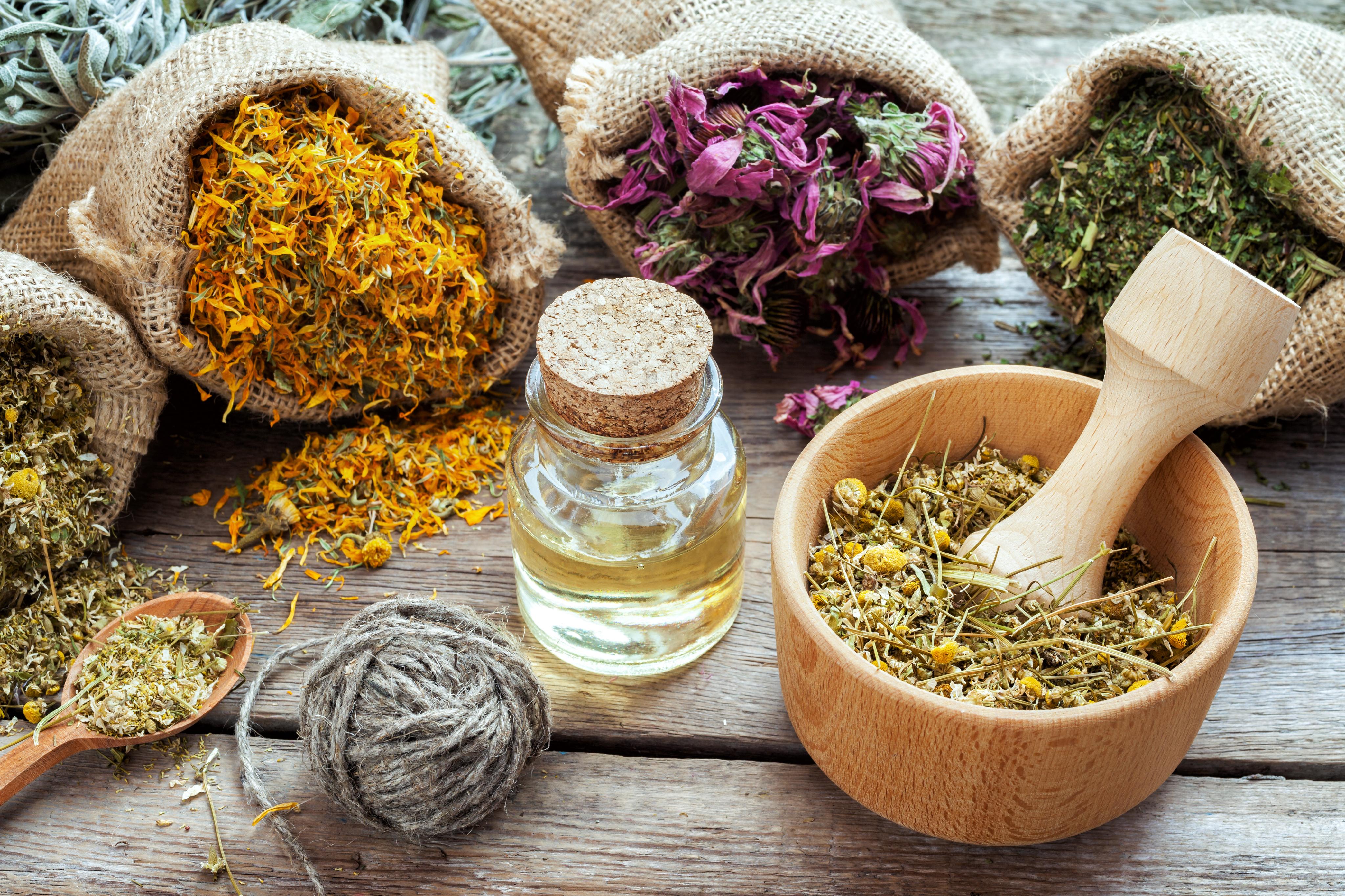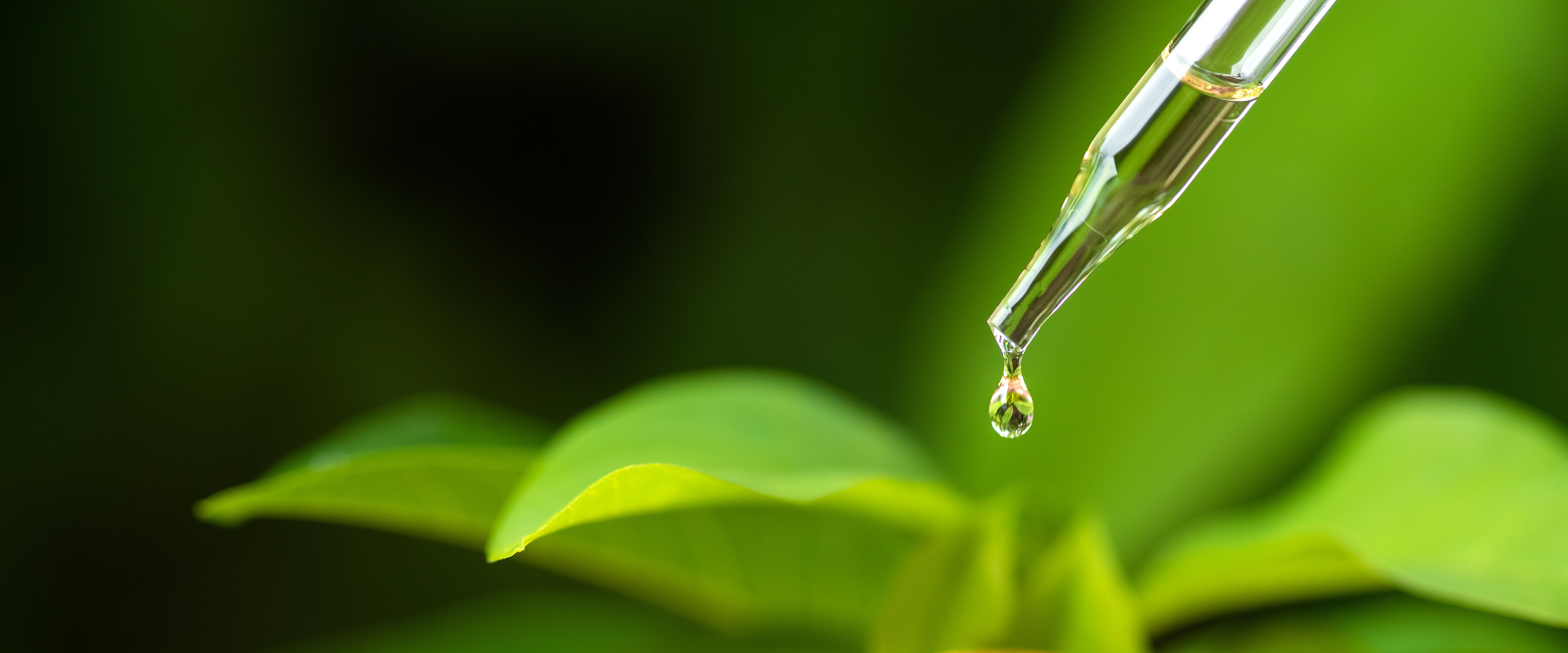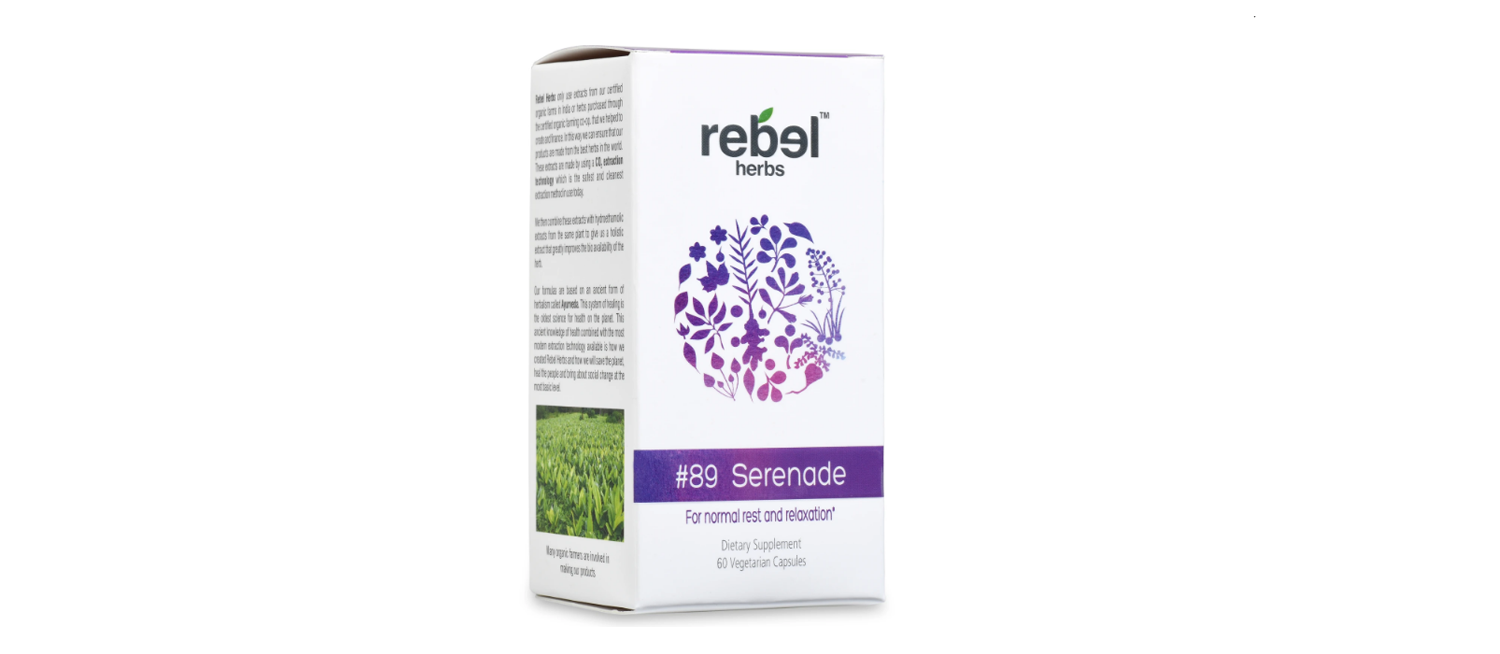Maintaining Healthy Blood Sugars with Ayurvedic Herbs
Maintaining healthy blood sugar is imperative to the health of every cell, organ, and our entire body. When regulation of blood sugar (glucose) is disrupted, a diagnosis of diabetes is made. Did you know 1/10 Americans have diabetes and 90-95% of them have type 2 diabetes, which is mostly a preventable disease (1)? You may be wondering, what’s the difference between type 1 and type 2 diabetes?
Type 1 diabetes is a condition where the body’s immune system attacks the beta cells in the pancreas that are responsible for producing insulin. Insulin is the hormone that tells our cells to take glucose out of the bloodstream so they can use it for energy. It also allows us to store glucose, called glycogen, in our liver and muscles to use as energy when we need it later. Individuals with type 1 diabetes need to provide external insulin as they are unable to make enough.
Type 2 diabetes is a condition that usually occurs later in life, although there is an increasing number of children and teenagers developing it over the last 20 years (1). The difference in type 2 diabetes is the beta cells in the pancreas are still producing insulin but the body becomes less sensitive to its presence. In early disease, the pancreas produces more insulin to combat high blood sugar but as the disease progresses, function of the beta cells diminishes, and medications may be needed. Many health challenges come along with a diagnosis of type 2 diabetes. With prolonged blood sugar dysregulation, the blood vessels and nerves become damaged affecting the eyes, heart, kidneys, brain, and extremities. In this article, we will talk about type 2 diabetes and ways to support healthy blood sugar regulation with the help of Ayurvedic herbs.

First, how do you know if you are developing type 2 diabetes? Hemoglobin A1c is a simple blood test that checks blood sugar regulation over a 2-3 month period of time. If your A1c is less than 5.7% then you are in the normal range. A 5.7%-6.4% means you are categorized as “prediabetes” and action is needed. An A1c of 6.5% or higher will give you the diagnosis of diabetes. You may also have been experiencing symptoms such as increased thirst, urination, and increased hunger. It doesn’t mean it is too late to utilize Ayurvedic herbs or work on diet and lifestyle. In fact, a study comparing 5 grams of Fenugreek (Trigonella foenum-graecum) twice daily before meals to placebo showed significant decreases in diabetic patient’s A1c in just 60 days. They also had decreased fasting blood glucose, waist circumference, body mass index (BMI), diastolic blood pressure, and reported an improved quality of life (3). Work with a practitioner and monitor your sugars so you can safely use herbs, diet, and lifestyle techniques in conjunction with medications.
Did you know stress affects blood sugar? It is our evolutionary response to release stored sugar into our bloodstream so we can have fuel to run from danger. If we are stressed, our body releases hormones that spike blood sugar and decrease our sensitivity to insulin. Individuals who have diabetes find it harder to manage blood sugar during times of increased stress. One of my favorite tools to decrease the stress response in the body is pranayama or Ayurvedic breathing techniques. Try the technique at the end of this article and see how different you feel in just 10 breaths.
A study on diabetic patients used an hour of pranayama a day along with Amla (Phyllanthus emblica) to successfully decrease blood sugar, lipids, and other metabolic markers that indicate disease progression. Participants also reported decreased anxiety and an overall improved feeling of well-being. Amla was shown to regenerate and rejuvenate the Beta cells of the pancreas, leading to increased insulin production and secretion (8). It is high in antioxidants including vitamin C and carotenoids. It also contains minerals such as calcium, iron, phosphorus, and chromium. Chromium has been proven to increase insulin sensitivity and decrease blood sugar along with providing protection to the heart (5).

With the last name Sweet, I am not a purist when it comes to sugar but not all sugar is created equally. In fact, raw-unfiltered honey mirrors glycogen and has been shown to stabilize blood sugar and help prolong sleep (2). When honey has not been heated or filtered, it contains many proteins, enzymes, and immune supporting properties. Individuals who have blood sugar dysregulation often experience difficulties sleeping. Why? When your blood sugar gets too low, the only way for glycogen to be broken down into glucose and dispersed into the blood while sleeping is for your body to release cortisol. Cortisol is one of our stress hormones and it directly inhibits melatonin, our sleep hormone. One of my favorite recipes for stabilizing blood sugar is ‘Dr. Sweet’s Nighttime Beverage’ with raw-unfiltered honey, Rebel Herb’s Ceylon Cinnamon and Moringa. Keep reading and you’ll find the recipe below!
Ceylon or ‘True’ cinnamon (Cinnamomum zeylanicum) has been shown to stabilize blood sugar by “reducing postprandial intestinal glucose absorption by inhibiting the activity of pancreatic α-amylase and α- glucosidase, stimulating cellular glucose uptake by membrane translocation of GLUT-4, stimulating glucose metabolism and glycogen synthesis, inhibiting gluconeogenesis by effects on key regulatory enzymes and stimulating insulin release and potentiating insulin receptor activity” (7). What does all that mean? Basically, it targets various biochemical processes in the body to decrease and regulate blood sugar. True cinnamon is also delicious, in my opinion, so it’s easy to incorporate into food as medicine.

Moringa (Moringa oleifera) is growing in popularity as the ‘all-time’ superfood in the United States. It is high in antioxidants and therefore, has a variety of positive effects on the body including blood sugar support. A study of 55 non-insulin dependent type 2 diabetics received either moringa, neem (Azadirachta indica), or placebo for 40 days. Although both the moringa and neem groups showed improvement with postprandial and fasting blood glucose levels, moringa was superior. Fats in the blood (lipoproteins) were also tested as they indicate cardiovascular risk, a common comorbidity in type 2 diabetes. Both groups that received the herbs showed a decrease in total cholesterol, LDL and triglycerides, while not affecting healthy (HDL) cholesterol. Last, but not all that moringa does, is promote deep sleep which is why it is in my bedtime elixir.
There’s one more superstar I want to mention for supporting healthy blood sugar, clearing the blood of unhealthy fats, and protecting the heart; a tree resin called Guggul (Commiphora mukul). It is well known in Ayurvedic medicine for treating excess Kapha which can present as obesity, depression, sluggishness and congestion in the bodily systems. Guggul contains guggulsterones which is not only fun to say but these constituents have been shown to increase insulin secretion, re-regulate carbohydrate and lipid metabolism, decrease glucose production by the liver, and enhance cellular glucose utilization (6).
As discussed, many Ayurvedic herbs can support healthy blood sugar regulation. Rebel Herbs carries powders that can be made into tea and added directly into foods or capsules that can be taken daily. One of my mentors, Dr. Fleetwood, a Naturopathic Doctor and Pharmacist, also asks the question “Where is the sweetness in your life?” if an overabundance of sugar is being consumed. Sometimes when life is stressful or challenging, we are looking to balance it out with something sugary in order to feel better (sugar releases dopamine, our reward neurotransmitter). So when the cravings hit, finding healthier alternatives like raw-unfiltered honey, a ‘feel good’ movie, exercise, playing with a child or pet can help bring sweetness into your experience. Supporting your body with healthy foods, exercise, stress reduction techniques, Ayurvedic herbs, and finding joy can be just as fulfilling as that Halloween candy!

Alternate Nostril Breathing
-
Sit comfortably, feel your feet on the ground
-
Block right nostril with right thumb, inhale through left nostril
-
Block left nostril with right pointer finger, exhale through right nostril
-
Keep fingers there and inhale through right nostril
-
Block right and exhale through left
-
This completes one round. Keep going!
Start with ten rounds and gradually increase to twenty. Remember to always change the side after inhale and before exhale.
Dr. Sweet’s Nighttime Beverage*
Serving Size: 2
Ingredients:
-
2 ½ cups milk or milk alternative
-
¼-½ teaspoon ground nutmeg (nutmeg is a natural sedative)
-
1 teaspoon of ghee or coconut oil (optional) - healthy fats will assist in sustained sleep and a happy brain
-
1 tablespoon of raw, unfiltered honey. Add at the end as to not destroy the enzymes, immune and blood sugar stabilizing benefits
-
½ teaspoon Rebel Herbs Moringa powder
-
½ teaspoon of Rebel Herbs Ceylon Cinnamon powder
Instructions:
1. In a small saucepan, add milk or milk alternative, nutmeg and coconut oil/ghee if desired.
2. Whisk to combine and warm over medium heat. Heat until hot to the touch but not boiling - about 5 minutes - whisking frequently and incorporating the nutmeg and oil into the liquid.
3. Turn off heat and let cool slightly. Then, whisk in Rebel Herb’s cinnamon and moringa powder.
4. Add raw, unfiltered honey and gently mix.
5. Serve immediately, dividing between two glasses.
6. Hop into bed and relax by reading, listening to yoga nidra, or just drifting off to sleep if you are ready-after brushing your teeth of course ;)
*If you desire spicy, add Rebel Herb’s ginger or turmeric powder for an anti-inflammatory and immune supportive combination. If you like it creamier, add the ghee or coconut oil and use an immersion blender to make a frothy bedtime latte. Yum!
References:
1. Diabetes Basics CDC: https://www.cdc.gov/diabetes/basics/type2.html
2. Fessenden MD PhD, R. The New Honey Revolution: Restoring the Health of Future Generations. Xulon Press, 2014.
3. Hassani, S., Arezodar, F., Esmaeili, S., & Gholami-Fesharaki, M. Effect of Fenugreek Use on Fasting Blood Glucose, Glycosylated Hemoglobin, Body Mass Index, Waist Circumference, Blood Pressure and Quality of Life in Patients with Type 2 Diabetes Mellitus: A Randomized, Double-Blinded, Placebo-Controlled Clinical Trials. Galen Medical Journal. 2019;8:e1432. doi:http://dx.doi.org/10.31661/gmj.v0i0.1432
4. Kumari DJ. Hypoglycemic effect of Moringa oleifera and Azadirachta indica in type-2 diabetes. Bioscan. 2010;5:211– 214.
5. PubMed: “A scientific review: the role of chromium in insulin resistance.” The Diabetes educator vol. Suppl (2004): 2-14. PMID: 15208835
6. Ramesh B, Karuna R, Sreenivasa Reddy S, Sudhakara G, Saralakumari D. Ethanolic extract of Commiphora mukul gum resin attenuates streptozotocin-induced alterations in carbohydrate and lipid metabolism in rats. EXCLI J. 2013;12:556-568.
7. Ranasinghe, P, and P Galappaththy. Health benefits of Ceylon cinnamon (Cinnamomum zeylanicum): a summary of the current evidence. The Ceylon medical journal vol. 61,1 (2016): 1-5. doi:10.4038/cmj.v61i1.8251
8. Sri, K.V.S., Kasturi, K., & Sivannarayana, G. Impact of Pranayama and Amla, an approach towards the control of diabetes mellitus. International Journal of PharmTech Research. 2014 Vol.6 No.3 pp.1157-1161 ref.20
Dr. Sweet’s Bio

Dr. Juliette Sweet holds a Doctorate degree in Naturopathic Medicine and Master’s degree in Ayurvedic Sciences from Bastyr University in Seattle, Washington. She is the owner of SpiraVita Natural Health where she implements Naturopathic and Ayurvedic philosophies for education, prevention, and treatment. Dr. Sweet is the Director of Clinical Education for Rebel Herbs and is excited to make ayurvedic medicine more accessible to everyone. She is also the immediate past president of the New Mexico Association of Naturopathic Physicians and was actively involved in attaining licensure for Naturopathic Doctors in 2019.




